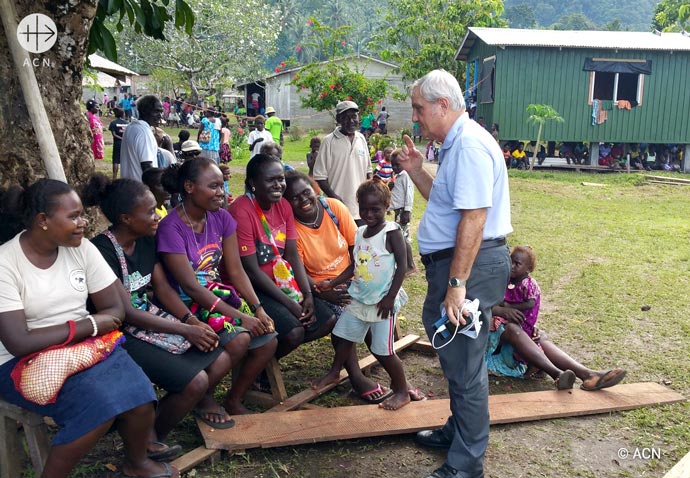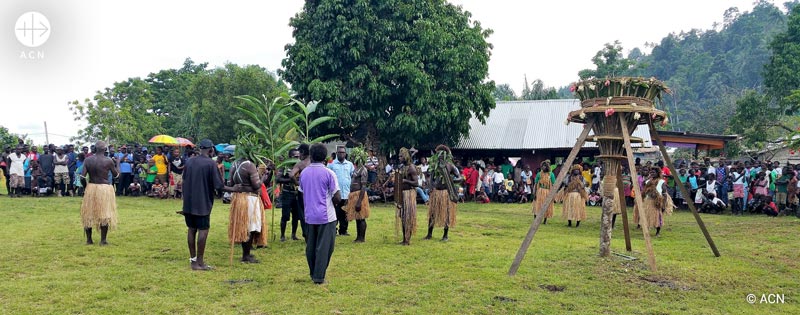Four of the seven parishes are still run by the Dominicans, who recruited a good number of priests in the region about 40 years ago, when the diocese was first established, in 1978, almost at the same time as when the Solomon Islands obtained independence from the United Kingdom.

After 11 years of effort: new local priest ordained in the Solomon Islands
The remaining three parishes are run by foreign missionaries. The very isolated Gizo Diocese had until now only two diocesan priests and 12 priests on loan. The ordination of Father Thomas and the fact that three more diocesan candidates from Waghina, Sirovanga, and the Shortland are close to ordination represent a major step for the diocese toward having its own local clergy.
Voru Voru was already proud of contributing to the Church a second priest: Father Kobakina, who joined the Dominicans; and now there is a diocesan priest, Father Patavolomo.
An expression of high expectations and big plans, a celebration and speeches by government officials and representatives of other Churches marked the occasion of Father Patavolomo’s ordination. Already some years ago, the 12 tribal chiefs of the Voru Voru region formally agreed to give a portion of their land to the Catholic Church where a pastoral center will be built.
The ordaining ordinary, Bishop Luciano Capelli, has underlined the role of the priest in today’s society as being at the service of the people by uniting them, forming them, and encouraging them to dream big—while also challenging them to do their part for the mission of the Church: a mission to serve the people.
Aid to the Church in Need (ACN) has supported the formation of Father Thomas and the other seminarians in the diocese. ACN also supports priests in the diocese of Gizo with Mass stipends.

After 11 years of effort: new local priest ordained in the Solomon Islands



